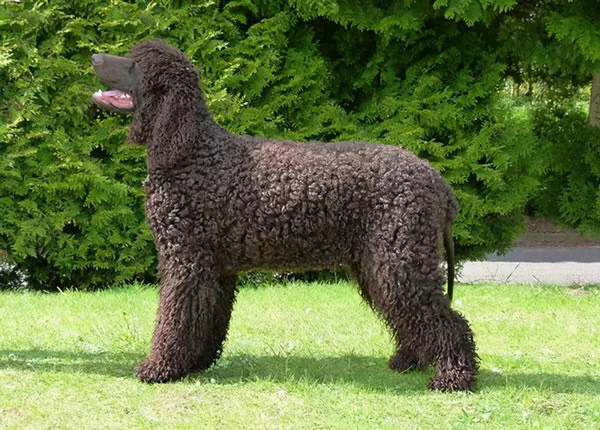The Pomeranian is a small yet bold breed known for its fluffy coat, spirited personality, and affectionate nature. Many people find these little dogs adorable, but is a Pomeranian a good pet for you? This article explores their characteristics, care needs, temperament, and suitability for different lifestyles.
A Brief History of the Pomeranian Breed
The Pomeranian belongs to the Spitz family and originates from the region of Pomerania, now part of modern-day Poland and Germany. Originally, these dogs were much larger and used as working dogs for herding and sledding. Over time, selective breeding resulted in the smaller, companion-sized Pomeranian we see today. The breed gained popularity in the 18th century, particularly after Queen Victoria of England adopted one. Today, Pomeranians are among the most popular toy dog breeds worldwide.
Physical Characteristics of Pomeranians
Pomeranians are known for their luxurious double coats, fox-like faces, and small but sturdy bodies. Here are some key physical traits:
Size: Pomeranians typically weigh between 3 to 7 pounds and stand about 6 to 7 inches tall.
Coat: They have a thick double coat that requires regular grooming to prevent matting.
Lifespan: With proper care, Pomeranians can live between 12 to 16 years.
Colors: They come in a variety of colors, including orange, black, white, cream, blue, and chocolate.
Pomeranian Temperament and Personality
Pomeranians are known for their lively and outgoing personalities. They are highly intelligent and full of energy, making them entertaining companions. Here are some personality traits:
Affectionate and Loyal: Pomeranians love their owners and form strong bonds with them.
Confident and Fearless: Despite their small size, they often act like big dogs, displaying courage and self-assurance.
Alert and Vocal: Pomeranians make excellent watchdogs as they are quick to alert their owners to strangers or unusual noises.
Playful and Social: They enjoy being around people and other animals but require proper socialization to prevent excessive barking or nervousness.
Is a Pomeranian a Good Pet for Your Lifestyle?
Deciding whether a Pomeranian is right for you depends on your lifestyle, living situation, and ability to meet their needs. Here are some considerations:
1. Space Requirements
Pomeranians are small dogs that adapt well to apartments and small homes. However, they do require indoor space to play and explore. Unlike larger breeds, they do not need a backyard but will still benefit from daily walks and playtime.
2. Exercise Needs
Although they are energetic, Pomeranians do not require excessive exercise. Short daily walks and indoor play sessions are enough to keep them happy. Interactive toys and mental stimulation are important to prevent boredom.
3. Grooming and Maintenance
Pomeranians have thick coats that require regular grooming. Key grooming needs include:
Brushing: Daily or at least several times a week to prevent tangles and matting.
Bathing: Every three to four weeks to keep their coat clean and healthy.
Dental Care: Small breeds like Pomeranians are prone to dental issues, so regular brushing is necessary.
Nail Trimming: Regular trimming to prevent overgrowth and discomfort.
4. Training and Socialization
Pomeranians are intelligent but can sometimes be stubborn. Training should start early to establish good behavior. Key training aspects include:
Housebreaking: Pomeranians can be difficult to house train, so patience and consistency are required.
Barking Control: They tend to bark frequently, which can be managed through proper training and positive reinforcement.
Socialization: Early exposure to different people, pets, and environments helps prevent fearfulness and aggression.
5. Health Considerations
Pomeranians are generally healthy, but they are prone to certain health issues, including:
Dental Problems: Due to their small mouths, they are at risk of dental disease.
Luxating Patella: A common condition in small breeds where the kneecap slips out of place.
Tracheal Collapse: A condition where the windpipe weakens, causing breathing difficulties.
Hypoglycemia: Especially in young puppies, low blood sugar levels can be a concern.
Are Pomeranians Good with Families and Children?
Pomeranians can make wonderful family pets, but they are better suited for households with older children. Due to their small size, young children may accidentally injure them. If you have children, it’s important to teach them how to handle a small dog gently and responsibly.
Do Pomeranians Get Along with Other Pets?
Pomeranians generally get along well with other dogs and even cats, especially if they are raised together. However, their bold nature may lead them to challenge larger dogs, which can be risky. Supervised interactions and early socialization can help ensure they coexist peacefully with other pets.
The Pros and Cons of Owning a Pomeranian
Pros:
- Compact size makes them ideal for small living spaces.
- Lively, affectionate, and loyal companions.
- Intelligent and capable of learning many tricks.
- Long lifespan with proper care.
- Good watchdogs due to their alert nature.
Cons:
- High grooming needs due to their thick coat.
- Can be stubborn and challenging to house train.
- Prone to barking, which may not be suitable for noise-sensitive environments.
- Fragile and at risk of injury due to their small size.
Conclusion
Pomeranians make excellent pets for the right owner. They are affectionate, energetic, and entertaining but require consistent training, socialization, and grooming. If you are prepared for the responsibilities of caring for a small, lively dog with a big personality, a Pomeranian can be a wonderful companion. However, if you prefer a low-maintenance pet or have very young children, you may want to consider other breeds.
By understanding their needs and personality, you can make an informed decision about whether a Pomeranian is the right fit for your home and lifestyle.
Related Topics:




















